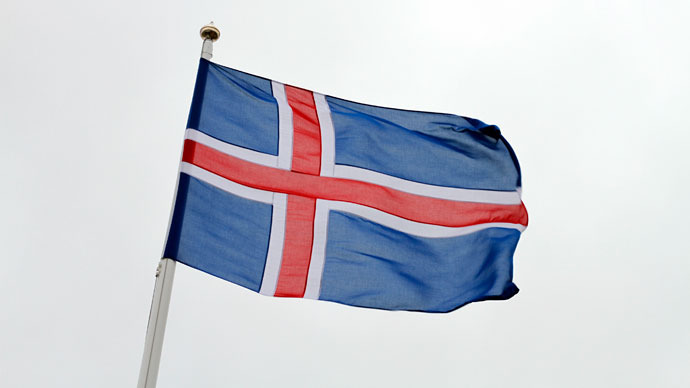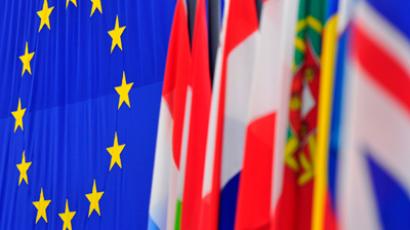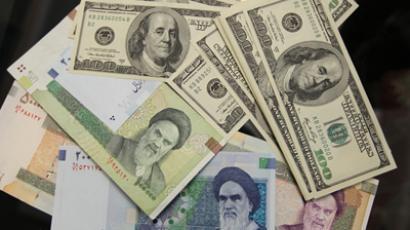Iceland considers dropping its currency

Iceland’s krona may become the world’s next obsolete currency, as economists evaluate whether to continue its use or jumping ship to the euro.
Less than five months after Finance Minister Katri Juliusdottir said the krona will never be fully restored as a free-floating currency, more talk from finance officials in Iceland confirm the Icelandic currency may eventually cease to exist.
“We have to consider other options. Another option is to
join a large currency union,” Mar Gudmundsson, Iceland’s
central bank governor, told Bloomberg on Tuesday.
“This is a discussion that’s taking place all over the
world. As the country is smaller, the more difficult it is,”
Gudmundsson said about switching to the euro.
Iceland began its EU membership application in early 2010 but in 2012, due to overwhelming opposition and a looming election, the Icelandic Parliamentary committee suspended ascension talks with the EU. Almost two thirds of Icelanders oppose membership and less than 25% support entrance, according to the most recent poll. However, ministers keep hinting the need to join up with the economic heavyweight.
When the 2008 economic crisis hit, Iceland shocked economic pundits and let its three largest banks fail, and default on $85 billion. The stock market dipped 90%, unemployment jumped to 10%, and most the inflation rate topped at 18%.
Serious economic restrictions were imposed on the krona to facilitate recovery, and now the currency isn’t strong enough to shed these crutches
Now Iceland has bounced back from those dark days. The stock
market has recovered, unemployment is hovering at around 5% and
inflation quelled to 4.2% in January 2013. All of these promising
signs of recovery spurred Moody’s to raise Iceland’s rating to
‘stable’, and Fitch upped its rating to BBB.
There are few success stories of ‘small’ currencies prospering in the Euro dominated economy, other than the Swedish and Norwegian krona, which became safe-havens for investors skeptical of the euro during the crisis.
Like Sweden and Norway, Iceland is a highly export driven economy. Keeping its own currency can give Iceland a competitive edge in the export market, if it decides to engage in a ‘currency war’ with the EU, Sweden, and Norway.
On Saturday G20 finance ministers in Moscow announced a unified truce against ‘currency wars’ pledging their commitment to "market-determined exchange rates." The topic was broached after the yen dropped over 7 percent under Japan’s Abe Shinzo’s aggressive fiscal policies to battle deflation.
“Monetary policy should not be used for the exchange
rate," stressed French Finance Minister Pierre
Moscovici.
Euro-ization and Dollar-ization
New aspiring eurozone members like Iceland, Latvia, Lithuania, and soon, maybe Poland, all need to decide if they want to retain economic independence or switch to the currency while the euro financial crisis is ongoing.
Estonia joined the euro in 2011 at the height of the debt crisis and has benefited. Latvia will join the euro area in 2014. Lithuania is expected to apply next year. The Poles may join the euro by 2017, the Guardian reports.
Latvia’s economy has been experiencing a EUR-LAT identity crisis for a while, with 80% of Latvian economic activity already tied to the euro, according to Prime Minister Valdis Dombrovskis.
“Our economy is completely euro-ized”, Dombrovskis
said, “whatever happens to the euro happens to
us.”
It is not necessarily good for countries to try to merge into bigger currency zones, chief economist at Deutsche Bank in Moscow Yaroslav Lissovolik believes.
“Some of the examples reside in Scandinavia, where Norway and Sweden opted not to join the Eurozone but still exhibited admirable growth and enviable stability amid the financial storms raging in Europe. The formation of currency zones as such may gain momentum on the back of regional integration, but it is not always a magic wand that will resolve macroeconomic difficulties,” Lissovolik told RT.
“The risk of joining a currency area is that eventually it may become unstable, with problems in one region then quickly spilling over into the other members of the currency union. But just as interdependence is a risk, it may also be an asset, as closer economic ties may boost investment and trade,” he added.
Weaker economies often do not have a choice on whether to save their national currencies. In Ecuador the US dollar replaced the national sucre as legal tender in 2000. The dollarization hit the Ecuadorian tourism industry hard, but instilled an overall economic stability on the oil and export focused country.
Newly elected Rafael Correa is critical of the ‘dollarization’ of the sucre, but it remains to be seen whether the reversal of the dollarization will be a top priority on his political agenda.
This past weekend also brought speculation about the weakening Egyptian Pound, which is being undermined by dollarization.
Black market prices have pushed up the value of the dollar,
which Egyptians are buying at 7 Egyptian pounds to the dollar,
higher than the official 6.73 exchange rate, Reuters
reports.
The increase in demand for dollars is an indication of distrust of government, which only transitioned to democracy 2 years ago after the overthrow of Honsi Mubarak.
"I am not worried about dollarization," Hisham Ramez,
New Central Bank of Egypt governor told CBC on Sunday.














